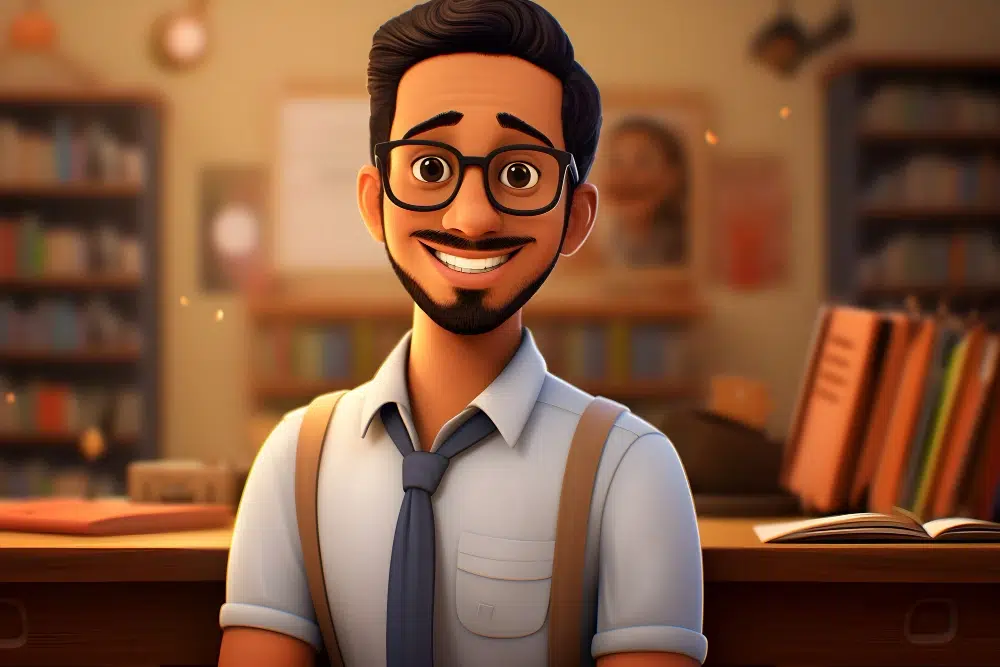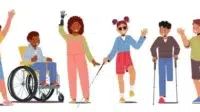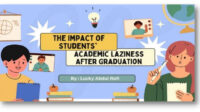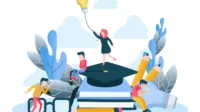Introduction: When “Teacher” Becomes Just a Title
In our country, teachers are frequently referred to as one of the unsung heroes. But in many cases, it’s the recognition of the weight they bear, not just the lack of it. We refer to them as the “frontline of education.” However, we frequently forget that if a spear is never sharpened, it might become dull.
Teachers were once held in high regard, not only as task assigners, but also as value cultivators. Today, twisted in bureaucracy and suffocated by administrative demands, they appear to have become system operators rather than soul-guiding educators.
On paper, the government has outlined four core competencies every teacher should have: pedagogical, personal, professional, and social. When combined, they are intended to mold educators into well-rounded individuals who are smart, bright, and incredibly human.
The actual query, though, is this: Do these competences actually exist, or are they merely things to cross off a certification checklist? Do teachers still have space to be shapers of civilization, or are they stuck in a cycle of routines that slowly erode their purpose?.
This piece isn’t meant to point fingers. It’s an invitation to teachers, future educators, and the wider public to pause and reflect: does our education system still have a soul? Or has it been reduced to nothing more than syllabi and performance reports?
A Closer Look at the Core Competencies of a Teacher
When the government defined the four core competencies for teachers, pedagogical, personal, professional, and social, the goal wasn’t just to produce instructors, but to nurture inspirers. And there’s good reason for that. On paper, these four pillars form the complete foundation of what it means to be a true educator.
Pedagogical competence calls for teachers to understand how children learn, not just academically, but also emotionally and psychologically. Personal competence demands a stable, honest, mature presence—someone who leads by example.
Professional competence centers on mastery of subject matter, continuous self-development, and skillful delivery. And social competence reminds us that a teacher’s role doesn’t end in the classroom; they’re meant to be part of the pulse of the community.
When applied as intended, these four competencies should produce educators who do more than just speak well in front of a class. They should be able to touch lives, teachers who think clearly, act calmly, stay attuned to their surroundings, and remain endlessly curious in their pursuit of knowledge.
But here’s the question we started with: Do these things truly exist in our classrooms? Or are they just bullet points memorized during training sessions, only to be forgotten when reality knocks on the door?
Those four competencies aren’t just bureaucratic checkboxes; they’re a reflection of a teacher’s inner integrity. Yet over time, as the system shifts a teacher’s focus from nurturing minds to filling out paperwork, that integrity begins to fade.
This is where we start to see the cracks—cracks not born of a teacher’s unwillingness to grow, but of a system that too often forgets teachers are human beings, not machines built to meet quotas.
On the Ground: Between Ideals and Harsh Realities
On paper, the four core competencies of teachers sound noble. But step into the real world, and the picture isn’t quite so ideal. Teachers are buried under piles of paperwork, forced to keep up with constantly shifting policies, and pushed to meet performance targets that often prioritize numbers over real impact.
In NTT, some honorary teachers earn just 250,000 rupiah a month. In Jakarta, one teacher takes home only 300,000 after unexplained deductions. A teacher in Malang went viral after receiving a first paycheck of only 150,000. And then some have to scavenge for recyclables after class, just to make ends meet.
How can someone truly embody social competence, build relationships, be a role model, when they’re struggling just to put food on the table? How can a teacher invest in professional growth when even buying a book feels like a luxury?
And more than that, so many teachers are losing time with their students, not because they don’t care, but because their days are swallowed up by reports, digital attendance, and endless assessment tools that pull them further away from what they’re really here to do: teach.
In a situation like this, a teacher’s competencies slowly shift from tools for personal growth to mere administrative checklists. No longer the soul of teaching, they’ve become just another box to tick when accreditation rolls around. But the spirit of a teacher can’t be measured by paperwork. It’s born in the meeting point between knowledge and compassion, between being a role model and being genuinely present.
The Root of the Problem: A Heavy System and a Lost Focus
If today’s teachers seem exhausted, it’s not because they’ve lost their passion. It’s because the system keeps weighing them down with things that pull them further away from the true heart of education.
First, the focus of education has shifted from shaping human beings to reporting numbers. Teachers are often judged by the completeness of their paperwork, not by the quality of their relationships or the values they instill.
Second, policies made at the top often miss the realities on the ground. Rules change rapidly, trainings are rushed, expectations are sky-high—yet real support is minimal. As a result, teachers are left to navigate it all alone, often with barely enough to get by.
Third, teacher welfare—especially for honorary teachers—still isn’t treated as a real priority. How can growth take root in dry soil? Knowledge can be taught, yes, but motivation doesn’t flourish in a weary heart.
And fourth, competency development often gets trapped in ceremony: certification without genuine understanding, training without follow-up, and evaluations that prioritize formality over substance.
Solutions and Islamic Reflection: Rebuilding the Soul of Education
Education will never rise above the quality of its teachers. So, if we’re serious about fixing education, we need to start by rethinking how we treat—and truly value—the teaching profession.
First, the system needs to shift from demanding to supporting. Yes, paperwork matters—but it shouldn’t come at the cost of a teacher’s space to reflect and be creative. Curriculums can be dynamic, but that doesn’t mean teachers should be reduced to directionless followers. Bring them into the policy-making process, because they’re the ones who live the reality every single day. During the golden age of Islam, students of Imam al-Shafi’i didn’t just write down lessons for the sake of documentation. They engaged in open dialogue, questioned ideas, and explored thought as a shared journey. Teachers weren’t just followed—they were truly listened to. The Prophet Muhammad (peace be upon him) once said, “I was sent to teach and to make things easy.” (Muslim) This isn’t just a quote—it’s a philosophy. A reminder that the heart of education is ease, clarity, and human connection— not endless procedures or rigid bureaucracy that strangles creativity. If the system today burdens educators instead of empowering them, then we’re drifting further from the very roots of prophetic teaching.
Second, teacher welfare should be a foundation, not a bonus. A teacher who is treated with dignity will teach with dignity. History tells us that in Baghdad, during the Abbasiya era, scholars and teachers at the Bayt al-Hikmah were not just educators—they were state intellectuals.
Their salaries were secured through public funds, a testament to the immense value placed on knowledge and those who possessed it. They weren’t treated as mere workers, but as pillars of civilization.
The Prophet Muhammad (peace be upon him) taught, “Give the worker their wages before their sweat dries.” (Ibn Majah) This isn’t simply advice—it’s a warning. A call to uphold justice, especially for those who give their lives to teaching. Ensuring a teacher’s dignity isn’t charity—it’s one of society’s deepest responsibilities.
Third, professional development should be grounded in values. It’s not just about technical training, but about mentorship that nurtures integrity, character, and the power of example Consider Al-Farabi, Ibn Sina, or Al-Ghazali. They weren’t just scientists or philosophers—they were murabbi, soul-guides who nurtured the hearts of their students as much as their minds.
In their halaqah, character came before content. Knowledge wasn’t just about intellect—it was about becoming fully human. In the Qur’an, Allah says: “Allah will raise those who believe among you and those who are given knowledge, by degrees.” (Surah Al-Mujadila: 11) This verse isn’t meant to comfort us—it’s meant to remind us: As long as a teacher learns and teaches with sincere faith, their rank is elevated—not by the world, but by God Himself.
Fourth, society must also relearn how to honor its teachers. Don’t just speak up when a child struggles; show up to encourage the ones who quietly give their all, trying to spark light in classrooms that often feel dim. In Andalusia, scholars like Ibn Hazm and Al-Zahrawi were honored by society not just as educators, but as leaders.
There was no “Teacher’s Day” marked on their calendars— because every day was a living recognition of the teacher’s role. Ali ibn Abi Talib once said, “Whoever teaches me even a single letter, I become his servant.” That wasn’t hyperbole. It was sincere reverence. And today? How often do we thank our teachers, without expectation, without condition, simply because they chose to care when they didn’t have to?
Because behind every child who succeeds, there’s a teacher who once went hungry, yet still smiled and said, “Let’s keep going with today’s lesson, okay?”
Conclusion: Keeping the Flame Alive in a System That’s Losing its Light
The four core competencies of a teacher aren’t just boxes to check off—they’re a reflection of what it truly means to educate: to understand, to guide, to nurture, and to inspire. But in the face of mounting pressures and rigid systems, these ideals often fade into mere formalities.
Lifeless outlines, stripped of the spirit they were meant to carry. And yet, quality education doesn’t come from ticking off tasks—it grows from the heart of a whole teacher. Not just someone who completes training, but someone who grows through sincerity. Not just someone who writes lesson plans, but someone who helps shape young souls.
So, if the system hasn’t caught up, we hold our ground. If recognition hasn’t arrived, we start by recognizing our own worth. If the world isn’t watching, the skies are still recording. As the Prophet Muhammad SAW said, “The best among you are those who learn the Qur’an and teach it.” (Bukhari).
And really, who better fits that role than a teacher?. To all teachers, future teachers, and those walking this education path, don’t burn out. Maybe today no one says thank you. But someday, someone will live a better life because of something you once said in class. And maybe that’s reason enough… to keep the fire burning. Wallahu waliyyut taufiq
Author: Sholahuddin Al-Ayyubi
Arabic Education Department, Faculty of Islamic Studies, Universitas Muhammadiyah Prof. Dr. Hamka
Supervisor: Muhammad Iman Sastra Mihajat, Ph. D.
Editor: Salwa Alifah Yusrina
Bahasa: Rahmat Al Kafi
Ikuti berita terbaru Media Mahasiswa Indonesia di Google News















